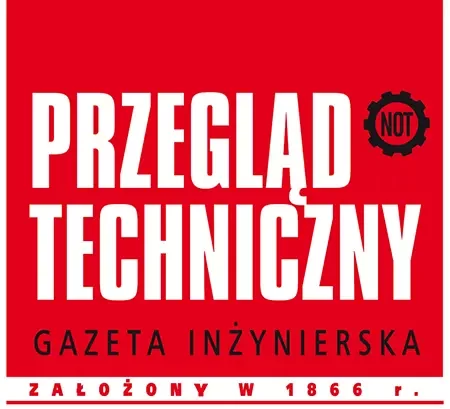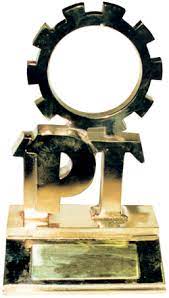mgr inż. Anna Stefania Grzebita
Akademia Leona Koźmińskiego w Warszawie
mgr inż. Michał Cichowicz
Szkoła Doktorska ZUT, Katedra Maszyn i Napędów Elektrycznych, Wydział Elektryczny, Zachodniopomorski Uniwersytet Technologiczny w Szczecinie
Streszczenie: W artykule przedstawiono możliwości wykorzystania nowoczesnych technologii stosowanych w Przemyśle 4.0 wpływających na zrównoważoną produkcję. Szczególną uwagę zwrócono na technologie takie jak: sztuczna inteligencja, uczenie maszynowe, Internet rzeczy, robotyzacja, technologie chmurowe, druk 3D, oraz techniki wizji maszynowej (m. in. rzeczywistość rozszerzona i wirtualna). Omówiono też wpływ nowych technologii na ochronę środowiska, ekonomię oraz społeczeństwo, bazując na koncepcie Tripple Bottom Line.
Słowa kluczowe: Przemysł 4.0, zrównoważona produkcja, inteligentna produkcja, zrównoważony rozwój, gospodarka cyrkularna
Literatura
[1] https://www.europarl.europa.eu/factsheets/en/sheet/77/sustainable-consumption-and-production, dostęp 18.08.2023
[2] O’Brien C. 1999. “Sustainable production – a new paradigm for a new millennium”. Int. J. Production Economics 60-61(1): 1–7.
[3] Pilevari N., Yavari F. 2020. “Industry Revolutions Development from Industry 1.0 to Industry 5.0 in Manufacturing”. Journal of Industrial Strategic Management 5(2): 44–63.
[4] Ghobakhloo M. 2019. “Industry 4.0, digitization, and opportunities for sustainability”. Journal of Cleaner Production 252: 119869.
[5] Cioffi R., Travaglioni M., Piscitelli G., Petrillo A., De Felice F. 2020. “Artificial Intelligence and Machine Learning Applications in Smart Production: Progress, Trends, and Directions”. Sustainability 12: 492.
[6] Garza-Reyes J.A. 2015. “Green lean and the need for Six Sigma”..International Journal of Lean Six Sigma 6(3): 226–248.
[7] Machado C.G., Winroth M., Ribeiro da Silva E. 2019. “Sustainable manufacturing in Industry 4.0: an emerging research agenda”. International Journal of Production Research 58(5): 1–23.
[8] Manavalan E., Jayakrishna K. 2018. “A review of Internet of Things (IoT) embedded sustainable supply chain for industry 4.0 requirements”. Computers & Industrial Engineering 127: 925–953.
[9] Bugmann G., Siegel M., Burcin R. 2011. “A role for robotics in sustainable development?”. IEEE Africon: 1–4.
[10] Yenugulaa M., Sahoob S.K., Goswamib S.S. 2023. “Cloud computing for sustainable development: An analysis of environmental, economic and social benefits”. Journal of Future Sustainability 4: 45–60.
[11] Gebler M., Schoot-Uiterkamp A.J.M., Visser C. 2014. “A global sustainability perspective on 3D printing technologies”. Energy Policy 74:158–167.
[12] Thiedea S., Damgravea R., Luttersa E. 2022. “Mixed reality towards environmentally sustainable manufacturing – overview, barriers and design recommendations”. Procedia CIRP 105: 308–313.
[13] Puhovichova D., Jankelova N.2022. “Effects of Industry 4.0 on Human Capital and Future of Jobs” EDAMBA 2021: 24th International Scientific Conference for Doctoral Students and Post-Doctoral Scholars.
[14] Garetti M., Taish M. 2012. “Sustainable manufacturing: trends and research challenges.”. Production Planning & Control The Management of Operations 23(2–3): 83–104.
[15] Rozwadowska A. 2020. „Modele Biznesowe Gospodarki o Obiegu Zamkniętym”, STUDIA PRAWNO-EKONOMICZNE CXVI(116): 253–268.
[16] Jasiulewicz-Kaczmarek M., Gola A. 2019. “Maintenance 4.0 Technologies for Sustainable Manufacturing – an Overview”, IFAC PapersOnLine 52-10: 91–96.
[17] Prause G., Atari S. 2017. “On sustainable production networks for Industry 4.0”, Entrepreneurship and Sustainability Issues 4(4): 421– 431.



